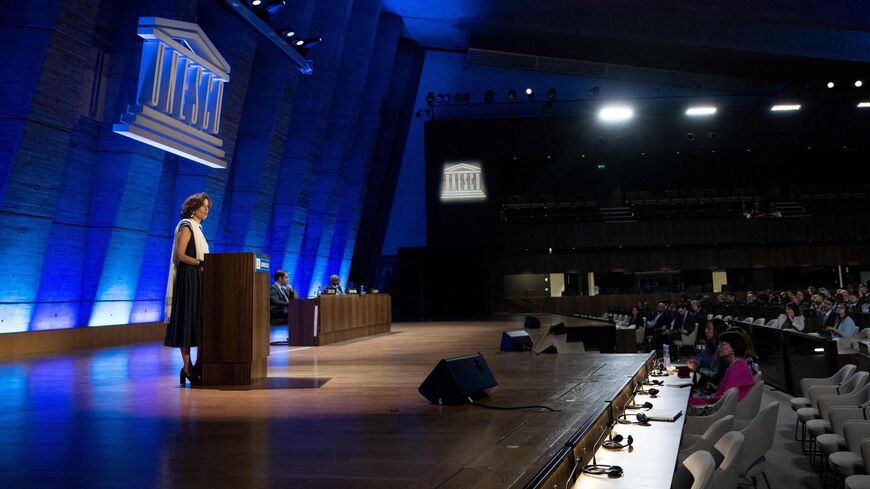PARIS — Israel finds itself in an uncomfortable position after the Friday decision by UNESCO members to readmit the United States, six years after it quit the organization over alleged anti-Israel positions. Israel’s Foreign Ministry had not commented on this development at time of publication.
By a large majority, members of the Paris-based UN agency for international cooperation on education, science and culture approved the request submitted by Washington earlier this month to return to the organization after it pledged to pay back six years in dues to the organization in installments.
According to diplomatic sources in the country, the chances of Israel returning to the UN agency are currently very slim, despite US recognition that the agency had changed it approach on Middle East issues. Thanks to mediation efforts by UNESCO chief Audrey Azoulay over the past six years, texts affecting Israel are no longer approved by a majority vote. Rather, they are accepted by consensus after consultations with Jordan, Palestine and Israel, even though Israel is no longer a member of the agency.
The envoys of Russia, Iran, Syria and Palestine expressed several objections during the debates on Thursday and Friday to the financial arrangements involved in the US return to the UN body. Iraq welcomed the return of the United States, expressing hope to work together on sustainable development goals. Mauritania, Algeria and Libya also welcomed the proposal for the United States to return.
The United States and UNESCO have a complicated relationship. In 2011, when Palestine was accepted as member of UNESCO, the United States stopped paying its annual contribution in accordance with American legislation. In December 2017, the United States decided to leave the organization over resolutions recognizing Muslim links to the Old Cities of Jerusalem and Hebron and not Jewish ones and others criticizing Israel. Israel followed suit and left the organization shortly after the United States.
Since US President Joe Biden took office, his administration has worked with Congress to enable the return to UNESCO. A congressional waiver will now allow the allocation of budgets to pay the contributions due to UNESCO.
In its mid-June letter, Washington acknowledged efforts by Azoulay to change the organization’s approach on Middle East issues. "Since our withdrawal from UNESCO on Dec. 31, 2018, we have noted UNESCO's efforts to implement key management and administrative reforms, as well as its focus on decreasing politicized debate, especially on Middle East issues. We are grateful for your work, and that of the member states, in achieving significant progress on these and other issues," it read.
Israel had left UNESCO, but did not cut all ties with the organization. For instance, as signatory of the World Heritage Convention, it is engaged with UNESCO in protecting heritage sites. Another link is the late Israeli artist Dani Karavan, who had designed the Tolerance Square inside the Paris UNESCO headquarters garden. UNESCO is involved in a marine heritage project in the Mediterranean Sea, an initiative closely followed by Israeli researchers, though they are not involved directly. Also, those who arrived for Friday’s conference could see on the fence of the building an exhibition of accomplished women, recipients of the L’Oréal-UNESCO international award for women in science. One of the pictures was that of Israeli bioinformatics professor Aviv Regev.








